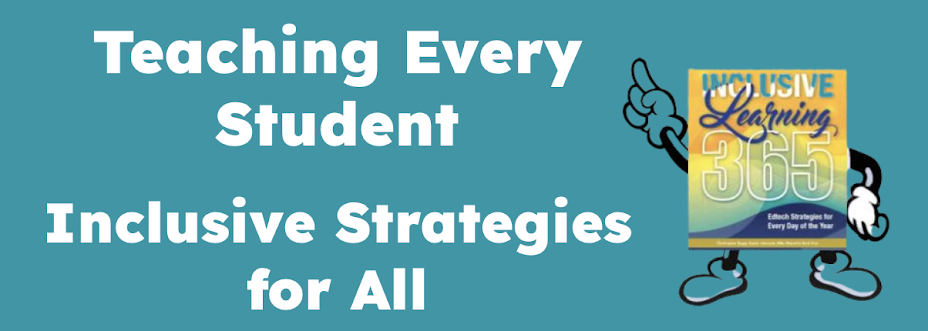We have an unprecedented opportunity to wisely invest in "high-quality" assistive technology and the professional development necessary to ensure effective integration and implementation due to the
ARRA funding for special education. The Ed.gov site includes this information in the fact sheet
Some possible uses of these limited-term IDEA ARRA funds that are allowable under IDEA and aligned with the core reform goals for which states must provide assurances under SFSF include: - Obtain state-of-the art assistive technology devices and provide training in their use to enhance access to the general curriculum for students with disabilities.
The
Center for Implementing Technology in Education (CITEd) has created a comprehensive resource to guide technology investment decisions using ARRA funds. They offer:
- Tech Matrix: Technology Supports for Learning - Align your technology to the struggles of your students (math, reading, writing and assistive technologies. Generate a matrix of all 261 software products that are detailed at this site. Read the research that supports each area.
- EdTech Locator - Use this tool to help your colleagues, Technology Coordinators, Professional Development Coordinators and administrators determine where they stand with their knowledge about technology integration. Take a self-assessment, score yourself on the rubric, develop a strategic plan and then review the resources that will help you implement your plan depending upon your roles and responsibilities.
- Archived Webinars - Watch the online "just-in-time" pertinent professional development. Registration is required to view or download.
Need additional background information about ARRA and Special Education?
Click here for answers to a multitude of questions.
We MUST make wise, informed decisions to meet the needs of all our learners with special needs. IDEA 1997 and 2004 both include the need to consider Assistive Technology for all students on IEPs. The appropriate assistive technology is rarely available. Stimulus funding provides a unique opportunity to ensure that students with special needs have access to the technology they need to obtain a free, appropriate education and make effective progress.
Get involved in the decisions your special educator leaders are making as they spend the ARRA funds. Advocate for the needs of your students. Ignorance of available AT is no excuse. Spend time exploring the
CITEd Tech Matrix to become knowledgeable about the possibilities. And explore the
STAGES Curriculum Software Search Charts which align with the seven stages of cognitive and language development. These are incredible resources for just this purpose.
Remember, too, assistive technology can be free - refer to the
Free UDL Tech Toolkit for additional tools and strategies.
